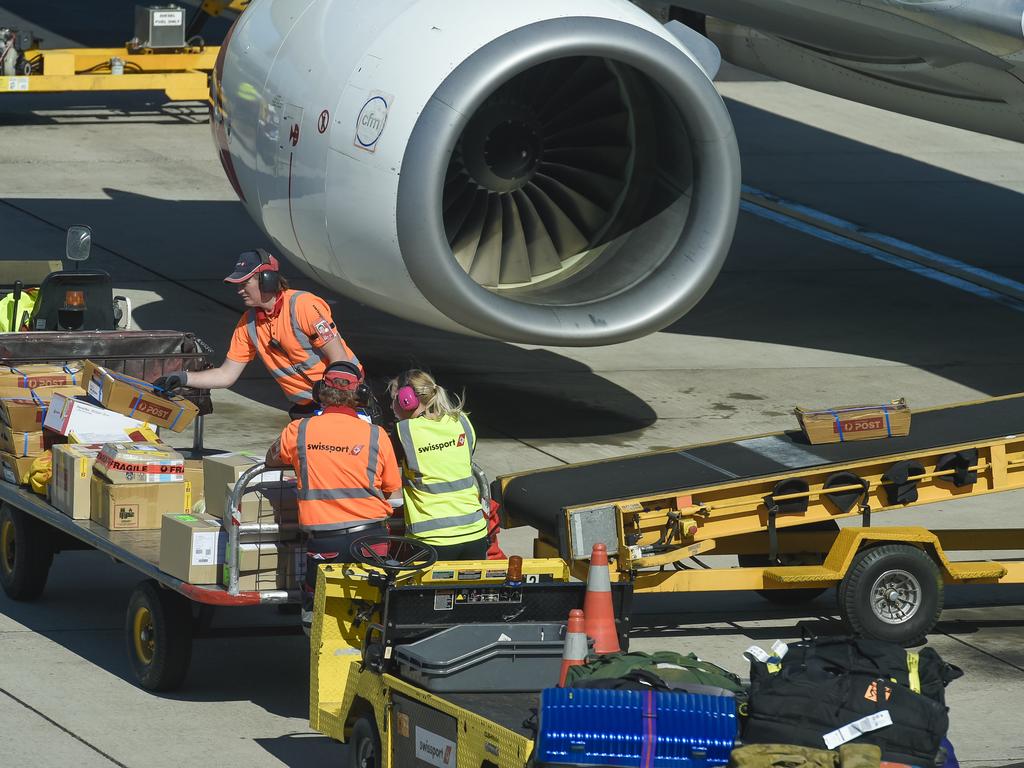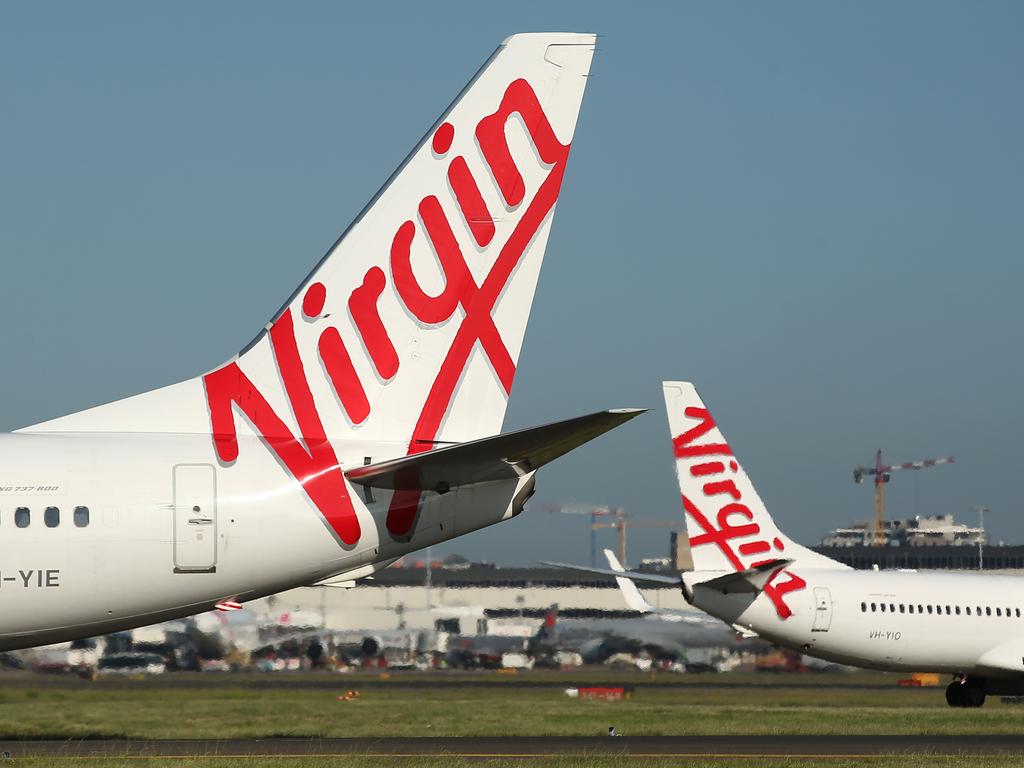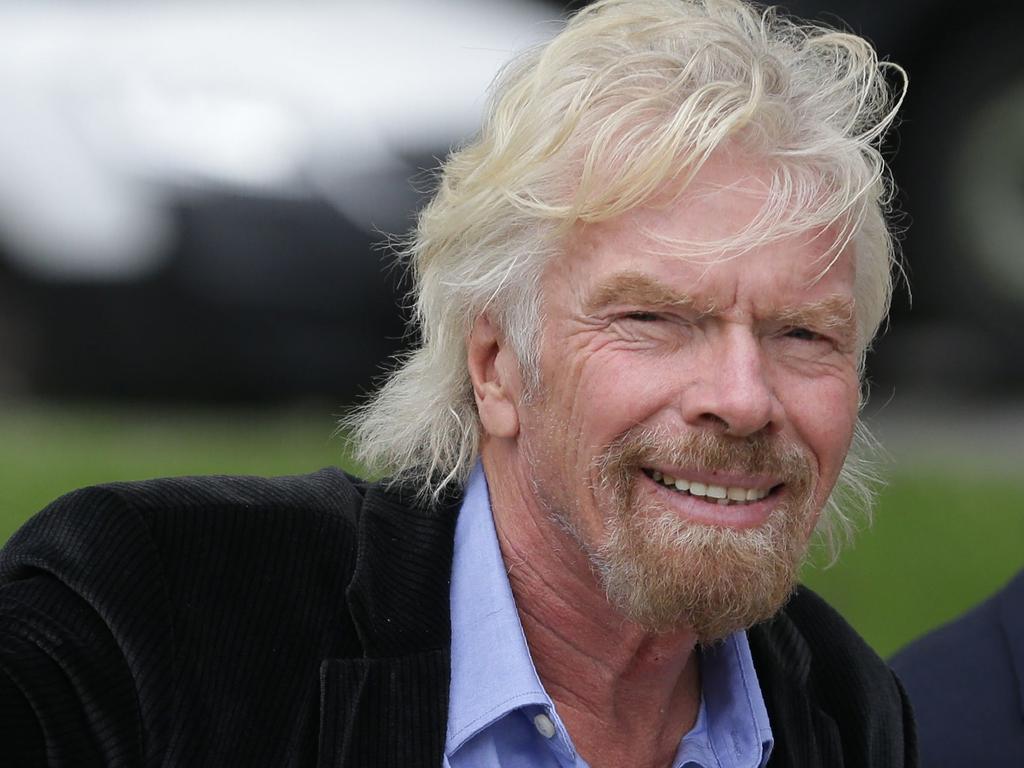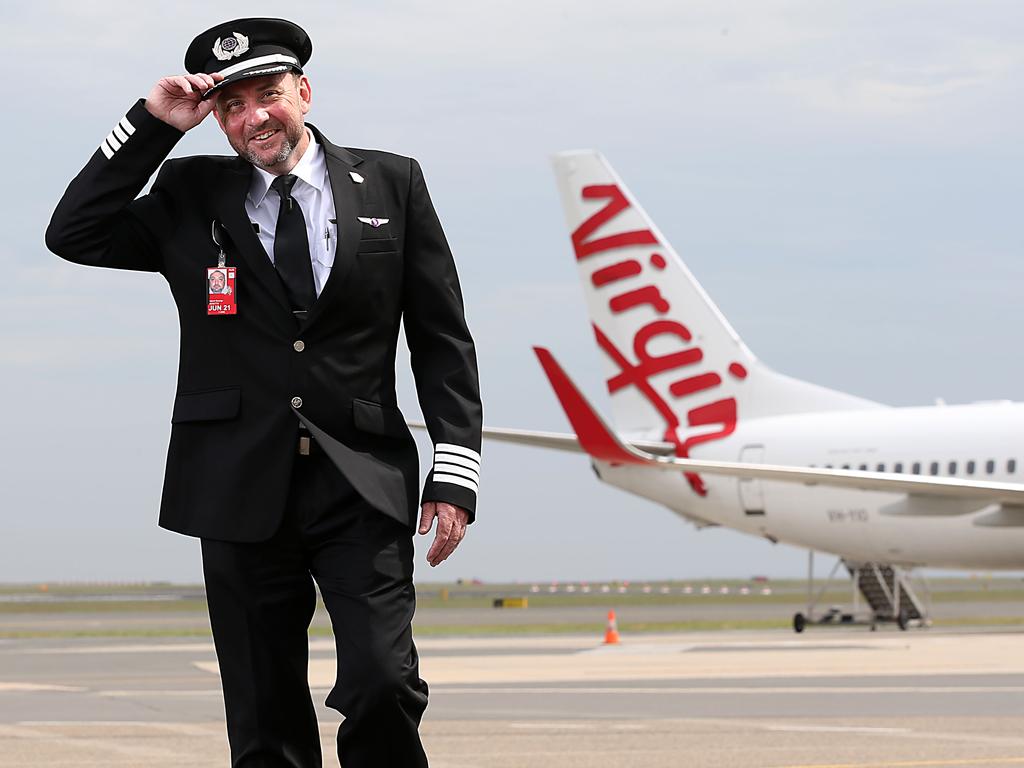Virgin Australia faces battle to regain domestic market share
Virgin Australia will face an uphill battle to regain its domestic market share, having already lost ground to rival Qantas.

Virgin Australia will face an uphill battle to regain its 30 per cent of the domestic travel market, with new analysis showing the airline is already losing ground to rival Qantas.
The IBISWorld report by senior industry analyst Tom Youl forecast Virgin Australia’s domestic market share to shrink to 21.6 per cent by mid-2021, down from 29.3 per cent this year.
At the same time Qantas was expected to increase its slice of the domestic pie to 65.1 per cent, up from 60 per cent.
The shift was largely due to Virgin Australia’s reduced fleet and workforce post-administration, with the airline expected to operate 57 Boeing 737s with up to 6000 employees.
Qantas was also downsizing but not to the same extent, with more than 20,000 employees set to be retained across the airline and low fares partner Jetstar, and over 150 aircraft.
Mr Youl said it had been a tough year for the Flying Kangaroo in its centenary, but there were green shoots emerging.
His report showed demand for domestic travel should accelerate next year, lifting revenue a healthy 51.4 per cent, to $9.9bn.
“Domestic travel is forecast to recover next year and international travel will potentially rebound strongly during the second half of 2021-22,” Mr Youl said.
“In the domestic market Qantas may end up in a better position overall due to the weakened threat of Virgin Australia.”
He noted that Virgin had emerged from administration with a new operating model that positioned the airline below the premium offerings of Qantas and above the budget deals of Jetstar.
“Virgin’s target market now appears to be budget-conscious travellers that are still willing to pay a bit more for extra perks such as lounges, faster check-in and enhanced digital technology on board,” Mr Youl said.
He said that could prove a successful strategy particularly in the pursuit of business travellers seeking a better deal in the post-COVID world.
“Business travel will likely change in the wake of the COVID-19 pandemic, with corporate travellers more likely to be price conscious and conservative in terms of how much they travel,” he said.
“This factor may provide an opportunity for Virgin to attract customers that are unwilling to pay for the premium services offered by Qantas.”
Virgin Australia CEO Jayne Hrdlicka has indicated the airline would target “roughly a third” of the domestic market, under new owner Bain Capital.
Even with a smaller fleet, Ms Hrdlicka was confident Virgin could return to its pre-COVID-19 market share.
“We’re reinvesting in technology and doing a lot of things that the business just hasn’t been able to do because it didn’t have the funds and was busy trying to rob Peter to pay Paul to stay alive,” Ms Hrdlicka told The Australian.
“We’re really positive about where we’re headed.”
Meanwhile Qantas’s plan to outsource the rest of its ground-handling operations reached a milestone on Monday, as workers lodged their own bid for the contract at 10 airports.
Consulting firm EY assisted with the bid on behalf of Transport Workers Union members, hoping to have 2000 roles retained by the airline.
TWU national secretary Michael Kaine said the bid was competitive, and Qantas should allow them to do the work.








To join the conversation, please log in. Don't have an account? Register
Join the conversation, you are commenting as Logout